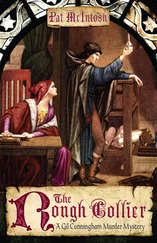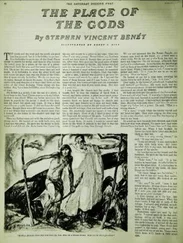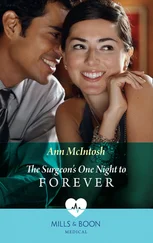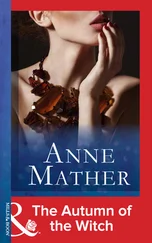“Sorry, Amir. I’m dead tired and misunderstood you. It would have been fine to bring Evelyn upstairs. Did she leave a message?”
“When you didn’t answer she gave up and left.”
I described Eris and asked him to call me immediately if he spotted her. Amir couldn’t leave his desk, so we woke the superintendent and asked him to accompany me upstairs. I wanted to make sure no more surprises awaited me.
I did find something, though not the kind of surprise I’d feared. Inside I picked up a note that had been slipped under the door, a parchment-colored paper folded in half with my name scrawled on the front. It looked like something torn off a notepad. Security around here was about as reliable as a bent rifle.
Please meet me at the Khyber Pass Restaurant tomorrow at 6
P.M
. I need to talk to you about Samuel—urgently.
It was signed by a Tomas S. Zakar. Zakar? The name sounded familiar. One of Samuel’s assistants in Iraq. I’d never met him, but my brother had mentioned him often enough. An Iraqi and a cultural anthropologist. “A very bright young man,” Samuel had said, “a tireless worker.”
I went into the living room and flipped through our photo albums. In his meticulous fashion, Samuel had labeled every picture, and I soon found some images shot at one of his sites. Several of these showed Zakar: measuring an artifact, kneeling by a trench alongside Samuel, the two of them raising a glass at day’s end in their tent.
Was it a coincidence the guy had shown up on the same night Hal died? I decided to accept his invitation, hoping he could shed some light on this mess.
The adrenalin boosting me throughout the night suddenly abandoned me. A profound weariness descended. I knew I couldn’t push myself any further. I lay on my bed and sank into the blessed oblivion of sleep.
Five

Sunday, August 3, 2003, 9 A.M.
The next morning I awoke with a ravenous appetite and the realization that I needed to talk to both my lawyer and the police. I’d panicked last night and would have to make up for that. I left an urgent message with my lawyer, Andy Stein, asking him to call me back first thing Monday morning.
Nothing showed up on News One, but the Times had devoted a couple of column inches to Hal. I couldn’t find any mention of Eris or her strange companion. The item quoted a Tenth Precinct detective, Paul Gentile, who said foul play wasn’t suspected. Code for when victims offed themselves. Normally, drug accidents like this wouldn’t merit any coverage, but when a rich person ODs, it makes the news.
It took me three calls to locate Paul Gentile’s office, only to be told he wouldn’t show up for a few hours. I made an appointment to see him at noon.
I showered and put on a summer-weight Prada shirt and jacket, and pants I’d had custom-made on my last trip to Milan. Might as well look presentable for the gendarmes. I perked a pot of coffee, got cereal and milk and ate a huge bowl. The towering backlog of mail piled up on my kitchen counter threatened to topple over. I hadn’t had the stomach to deal with even run-of-the-mill stuff since the accident. I pawed through it as I ate. Bills, more bills, cards of condolence. I found Diane’s handmade card in the pile.
The bills reminded me I’d done nothing about Samuel’s estate. That sad task was still before me. An envelope from a company I’d never heard of, Teras Distributing, showed up halfway through the pile, emblazoned with SECOND NOTICE JUNE 25TH in red type across the top. It confirmed that goods belonging to Samuel had been shipped to their New York warehouse through diplomatic courier. The package was being held in secure storage, waiting to be picked up.
After calling the number on the form, I told the man who answered that I was Samuel Diakos and gave him the claim number. He asked me to wait. When he came back on the line he said the package had already been picked up.
“Who signed for it?”
“You did.” He paused. “Sir?”
I hung up to the sound of the pennies dropping. I knew what Hal had done. He’d never returned my house keys when he stayed at my place after his mother died. He’d said at the time he needed to get away because he couldn’t stand all the reminders of her. I was going to be out of town anyway and took pity on him. He must have come in while I was in the hospital, searched through my mail, and found the first warehouse notice.
Samuel kept a duplicate set of ID in his study since a theft in his Beirut hotel room four years ago. It took me a few minutes to get up the nerve to enter his rooms. Once inside I yanked open his desk drawer. He kept his ID in a vinyl case, closed with a red rubber band. The rubber band was gone. Hal’s misstep told the tale. The object he’d stolen had belonged to Samuel. That explained the how, who, and approximately when. The why was simple. He needed the money.
Samuel had been like a kind uncle to Hal. Knowing how much it hurt when Hal’s own father mistreated him, my brother went out of his way to bridge the gap—remembering Hal’s birthday, bringing him along to the theater or on treks to museums. At times I’d felt jealous about having to share my brother’s attention with Hal. And this was how the bastard repaid us!
The knowledge of Hal’s theft plunged me into another black mood. A sharp reminder of how in such a short time I’d lost so much. Samuel’s study had the silent air of a place shut up and abandoned. I caught the faint whiff of tobacco from the rack of pipes on the shelf. His absence felt like a tangible force in the room. When I replaced his ID my eye caught the framed water-color sitting on his desk, the only possession left from his family home in Greece. His mother, who’d died when the Nazis torched their village, had painted it quite skillfully. She’d given it to a local man to repair the frame, and his work shed had escaped the flames. When Samuel returned for a visit, years after the war ended, he got the painting back.
I wanted to turn the clock back to the time before the accident, to hear Samuel come in the front door the way he used to, a Times folded beneath his arm, carrying breakfast and a couple of lattes. We’d alternate every Sunday. One week he’d make the trek to Katz’s and bring home salami and square potato knishes. The next, it would be my turn to go to Murray’s for fresh bagels and Nova Scotia lox.
Samuel had relished those trips to Katz’s, and not just because of the food. It gave him a reason to walk the Lower East Side, the first place he’d landed when a family sponsored him to come to America after the war. He loved the old red-brick tenements, now rapidly giving way to condo conversions, the streets wall to wall with discount stores, a spaghetti tangle of wires overhead.
I wished the thoughts away. For the first time in my life I wanted to be just like everyone else. To take the subway to a boring job. Sweat to make mortgage payments. Have a couple of beers with friends after work. To be anyone but me.
My brother could always be counted on to be my anchor in the tempests swirling through my life. I summoned up his image: small in stature, fit from decades of coping with the demanding terrain of his profession, his skin weather-beaten, his eyes almost always carrying a hint of good humor. He was cautious and punctual, with a razor-sharp memory. The antithesis of the absentminded academic.
I recalled some of those long-ago summer evenings at home. Samuel would smoke his pipe and I’d play happily with my train cars, using the iron grid of the balcony for tracks. Friends told me my penchant for acting out came from lacking a father figure. Samuel was simply away too much to fill those shoes. But lately I’d come to a different conclusion. In my eyes he’d always been close to a god. And you can’t compete with that. I thought I knew what it must be like to have a celebrity for a father, a mega rock star or a sports hero. The light their sons shed on the world would always be a dim bulb in contrast.
Читать дальше













